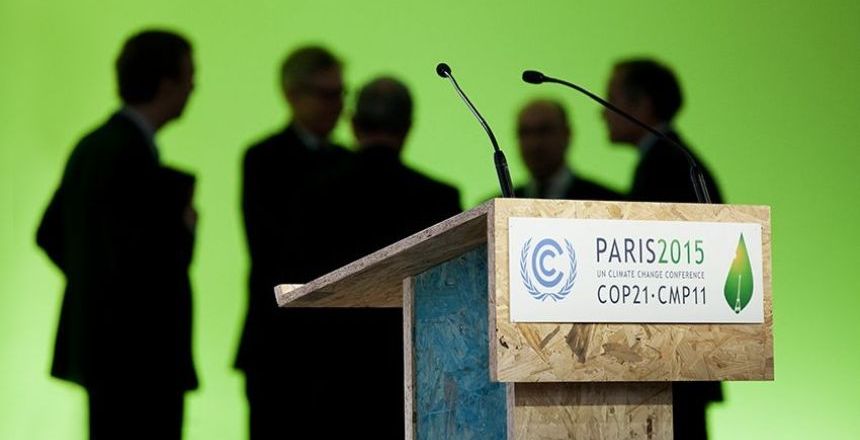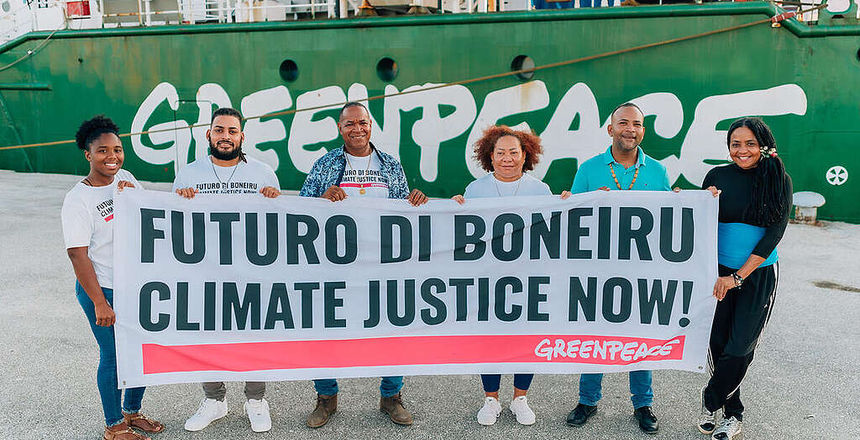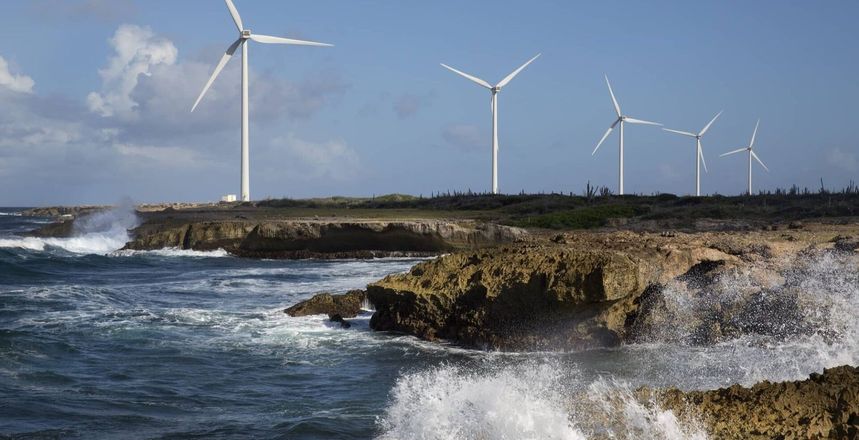News Sustainable Energy Social Improvement
3 min.
If humanity as a whole does not manage to slow down the heating of our planet Earth, a considerable part of the island of Bonaire (one fifth to be exact) risks disappearing into the sea as a result of rising seawater levels. That’s one of the conclusions of a recent research conducted by the Vrije Universiteit (VU) Amsterdam and commissioned by Greenpeace. The university’s researchers analyzed the impact of different climate scenarios on the island for different points in the future (2050, 2150 and 2300).
Different scenarios
If global warming can be limited to 1,5 degrees Celsius, as recorded in the Paris Climate Agreement, the consequences in Bonaire could be manageable. Very serious problems start arising when global warming hits increases of 2,7 degrees Celsius or more. In the case of a 4,4-degrees increase, parts of Bonaire’s capital Kralendijk and the lowest areas on the island’s southside could be swallowed by the sea entirely. On top of that, serious climate change will lead to the disappearance of coral reef around Bonaire, which increases the risk of floods on the island considerably.
“In the absence of intervention, Bonaire’s coastline will change considerably”, the research states, “Bonaire will become a much smaller island in that case”. In the most disastrous scenarios, large parts of the reefs will die, meaning that lots of the island’s natural protection against water and storms disappears, along with its attraction as a hotspot for divers. This way, climate change can lead to both economic and health-related damage in Bonaire.
Not the first time alarm bells are ringing
The most recent VU report about climate change and its potentially disastrous effects for the Caribbean Netherlands is not the first time the alarm bells are being rung. Back in 2017, the Koninklijk Nederlands Meteorologisch Instituut (Royal Netherlands Meteorological Institute or KNMI) already concluded that the Caribbean islands are particularly vulnerable to the impact of climate change. “The Dutch Caribbean islands, Bonaire being one of them, have not yet received the attention they deserve as part of Dutch climate research”, says Pieter van Beukering, professor Environmental economics and Director of the Instituut voor Milieuvraagstukken (Institute for Environmental Studies or IVM), “This report [the most recent VU report] represents an important first step towards changing that situation”.
The insufficient attention for the Caribbean Dutch islands was also emphasized last June, when senators Lammert van Raan (PvdD) and Sylvana Simons (Bij1) asked parliamentary questions about the then-new report by United Nations climate panel IPPC. At the time, Dutch Minister for Climate and Energy Policy (Klimaat en Energie) Rob Jetten recognized that the IPPC report contained worrying information for small islands like Bonaire, Statia and Saba. In response, the government repeated its desire to strive for the objectives outlined by the Paris Agreement, but Greenpeace demanded more. Their most recent research should serve as the basis for this “doing more” and the organization is prepared to get its way via the courts, together with the inhabitants of Bonaire, if necessary.
Are you interested in taking a look at the Greenpeace report yourself? Check it out here, all downloads are free of charge!
The basis for this article was originally published on www.nos.nl and others in September 2022.





